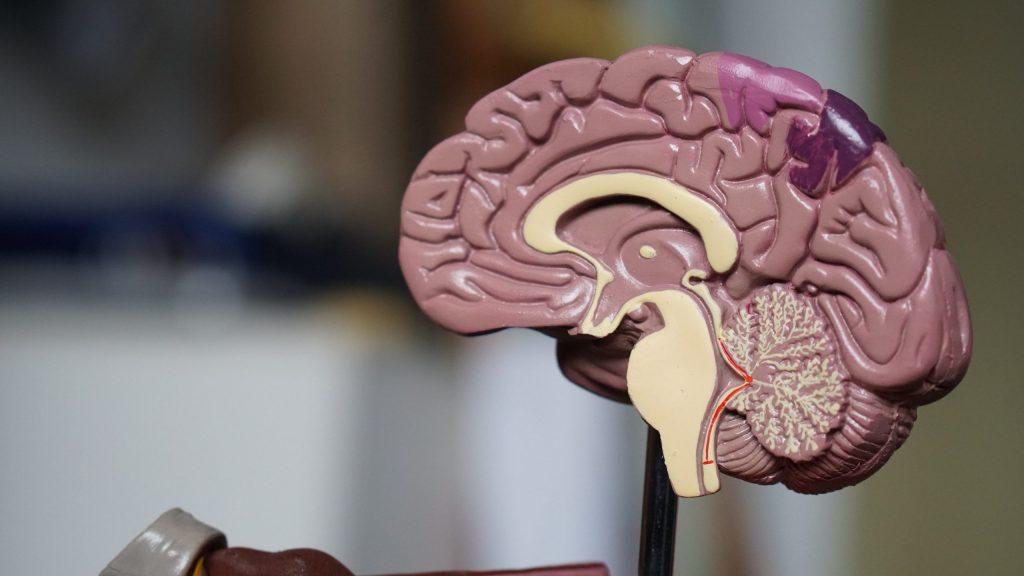What is EMDR?
Eye Movement Desensitization and Reprocessing (EMDR) is an integrative therapy that has been extensively researched with many populations and presenting mental health problems. EMDR works by helping the brain reprocess disturbing memories so they no longer trigger intense emotional or physical reactions. Many people find it effective, even when other therapies haven’t worked. EMDR therapists are specially trained to guide clients through this structured process, ensuring a safe and supportive environment for healing.
What Issues Does EMDR Therapy Help With?
It is effective for treating the following challenges:
- Trauma symptoms, PTSD, Complex PTSD
- Anxiety
- Complex grief
- Addictions
- Sexual/physical/emotional abuse
- Phobias
- Dissociative disorders
- Relationship betrayals & break ups,
- Low self-esteem, perfectionism and self-criticism
- Processing difficult or shocking situations and experiences
- Many more mental health problems
What is different about Eye Movement Desensitization and Reprocessing (EMDR) therapy from talk therapy?
EMDR treatment is very different from traditional talk therapy as you don’t need talk about all the details of the presenting issue or experience in order for the therapy to work. Eye desensitization therapy uses something called “bilateral stimulation” through the forms of eye movements or tapping to access unprocessed (or “stuck”) memories or beliefs and process them through until completion, and the symptoms are significantly reduced or gone all together.

How does bilateral stimulation help me?
“Eye movements or other forms of bilateral stimulation seem to activate your problem-solving process, something that happens during REM sleep when your eyes are darting back and forth. By focusing on a specific problem and its negative and positive emotions, sensations, and beliefs, then adding bilateral stimulation, your brain begins problem-solving. Since you are focused on the specific problem, your brain can work through it more effectively than what may randomly come up while sleeping.” – EMDR Consulting
What can EMDR Therapy Treatment help with?
Oftentimes traumatic experiences can change our beliefs about ourselves and the people around us. With eye movement desensitization and reprocessing we not only target the specific experiences to and lower the intensity of your response to it, but also the beliefs that were formed as a result of these experiences. EMDR therapy can help you see the cognitive mismatch of thoughts and beliefs: what was in the past and what you know about yourself now, after the event.
EMDR helps link, blend and consolidate past negative experiences into a present adaptive network. This means that it supports your neural (brain) network in keeping what is helpful for you now and letting go of what is no longer necessary to ruminate or reflect on. Learn more about how EMDR works and research and evidence supporting this approach

Does EMDR Work with Trauma?
EMDR can be especially useful for trauma or Post Traumatic Stress Disorder (PTSD) symptoms. In fact, it is one of the best treatments for PTSD. EMDR trauma therapy can help you process disturbing events, upsetting memories, thoughts, and feelings related to the trauma.
A traumatic event or target memory can be easily triggered in the present as you relive it over and over again through images, smells, sounds, and feelings. These memories can interfere with your daily functioning.
EMDR therapy works by directly affecting the brain and “unfreezing” the traumatic memories. Over time you can work through the traumatic event. With effective treatment, you will be able to think about the event and it becomes less upsetting and is replaced with more positive beliefs.
It has been shown to be effective for traumatic events such as rape and sexual abuse, combat trauma, childhood trauma and neglect, life-threatening accidents, and symptoms such as anxiety, depression, and substance abuse.
FAQs on EMDR
Can EMDR be done online or does it require in-person sessions?
Yes, EMDR therapy can be done both in-person and online. Virtual EMDR sessions use the same techniques, such as bilateral stimulation through guided eye movements or tapping, to help process trauma and difficult memories. Many clients find online EMDR just as effective as in-person sessions, offering flexibility and accessibility for those unable to visit the clinic.
How long does EMDR therapy take to work?
The length of EMDR therapy varies depending on the individual and the complexity of the issues being addressed. Some clients experience relief after a few sessions, while others may need more time to fully process traumatic memories. On average, EMDR therapy can range from 6 to 12 sessions, but this can vary depending on the severity of the trauma and individual progress.
Is EMDR therapy effective for anxiety and panic attacks?
Yes, EMDR therapy is highly effective for treating anxiety and panic attacks. By targeting the root causes of anxiety, such as past traumas or negative beliefs, EMDR helps to reprocess those memories, leading to a reduction in anxiety symptoms. Many clients report long-term relief from anxiety after completing EMDR therapy.
Do I need to relive traumatic experiences during EMDR therapy?
One of the key benefits of EMDR trauma therapy is that you don’t need to talk in detail about your traumatic experiences with your counsellor. It can be difficult to need to say all the details of traumatic event, and so the benefit of this therapy is that you don’t need verbalize all the details in order to receive help. The therapy focuses on reprocessing the memory, which at times make you feel like you are reliving parts of the event, but you do not need to tell your therapist the details. We understand that this can be difficult for clients, however your therapist is trained in supporting you through this process so you can reprocess the memories and so they don’t carry the same weight they did before. Your EMDR therapist will guide you through the process, ensuring you feel safe and supported without needing to share every detail.
What is bilateral stimulation in EMDR therapy?
Bilateral stimulation refers to the use of alternating movements, sounds, or taps that engage both sides of the brain during EMDR eye movement therapy. This technique helps to “unstick” traumatic memories, allowing the brain to process and resolve them. Bilateral stimulation is central to the EMDR process and is often done through eye movements, hand taps, or audio tones.
Can EMDR help with low self-esteem or negative beliefs?
Yes, EMDR is effective for addressing low self-esteem, perfectionism, and negative self-beliefs. During EMDR therapy, your EMDR Practitioner will help you identify and process the experiences that led to these beliefs, allowing you to replace them with more positive and adaptive thoughts. Many clients report a significant boost in self-confidence and self-worth after completing EMDR therapy.
Are there side effects of EMDR therapy?
Most clients experience minimal side effects during EMDR therapy. Some may feel emotionally drained after a session, as the process involves working through challenging memories. However, this is generally temporary, and any discomfort usually subsides as therapy progresses. Your EMDR clinician will work closely with you to ensure you feel supported throughout the process.
Is it normal to cry during EMDR?
Yes, it is completely normal to cry during EMDR therapy. As you process traumatic memories and unresolved emotions, it’s common to experience a range of feelings, including sadness, grief, or relief. Crying is a natural way for your body to release these emotions, and your EMDR therapist will create a safe, supportive space for you to express whatever comes up during the session.
Why do I feel angry after EMDR?
Feeling angry after an EMDR session can happen as part of the emotional processing that occurs during therapy. EMDR can uncover emotions tied to past traumas or experiences, and anger is a natural response to situations where you may have felt hurt, betrayed, or powerless. These emotions are often part of the healing process, and your EMDR counsellor can help you explore and work through them in subsequent sessions.
Why is EMDR so exhausting?
EMDR can be mentally and emotionally exhausting because it requires the brain to process deeply rooted memories and emotions. The bilateral stimulation involved in EMDR activates parts of the brain that handle problem-solving and emotional regulation, which can leave you feeling tired after a session. This exhaustion is a normal part of the healing process, and it’s important to rest and practice self-care after your sessions.
Can children and teens benefit from EMDR therapy?
Yes, EMDR therapy is effective for children and teens who have experienced trauma or other distressing events. It can help them process difficult memories in a safe and structured environment, leading to emotional healing and improved mental health. EMDR can also be used to address anxiety, phobias, and behavioural issues in younger clients.
EMDR Therapy Treatment in Vancouver or Online
EMDR Therapists you can connect with in person in Vancouver and online for EMDR Therapy include Amy and Leanne. Your EMDR Therapist may also suggest combining with other therapies. Cognitive Behaviour Therapy (CBT), Internal Family Systems, One Eye Integration Therapy (OEI), and Somatic therapy are often used in conjunction as part of a treatment plan. Together they can provide a comprehensive approach to recovery that addresses both the emotional and cognitive aspects of addiction and trauma.

